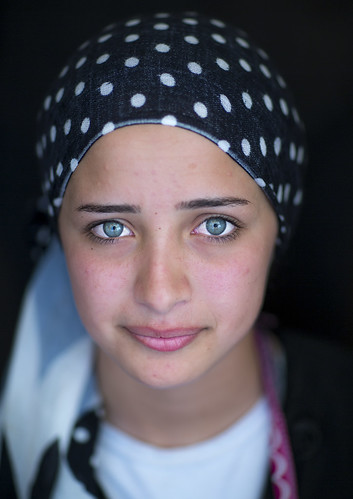She’s rented a nearby storage facility to hold the cleaning soap, and there’s a room in the house for the sewing machine and for packaging. To welcome me that day she and Ibtessan cooked a Syrian feast, grape leaves, pastries filled with rice, and an eggplant dish that tastes fresher than any I’ve ever had. Jihan is a Syrian refugee who fled Damascus in 2015, after being arrested by the Assad regime.
Crime against women
The youngsters growing up in Jinwar will be given the choice after they come of age whether or not they wish to stay within the village or transfer elsewhere, Derya stated. Jinwar has a council during which women take turns each month performing as the chief of the village. The women constructed the village in an ecological and sustainable way utilizing mud bricks. They constructed 30 houses, a retailer and a bakery, the place they sell bread and handicrafts to one another and to neighboring villages. They also have land the place they herd animals and develop crops that may be bought after they exceed their wants, says Nujin Derya, an activist in Jinwar.
She came to the village seven months ago and have become the top of Jinwar’s council. Emin, Efrin and other women say they need Jinwar to be a place that challenges conservative, patriarchal concepts. The women of Jinwar say they want to change the concept that women are victims of patriarchal relationships and violence.
One involved marriages, both in Syria or Lebanon, the place the “husband” later revealed himself to be a trafficker. Another involved groups of women and youngsters being trafficked throughout the border.
Syrian Women and the Refugee Crisis: Surviving the Conflict, Building Peace, and Taking New Gender Roles
Some of the ladies who reside there have fled displacement, rape, imprisonment and dying by the hands of ISIS and other armed teams. “In the struggle situations that we have been via, each woman suffered. Every girl was hurt. Every woman was misplaced, but Jinwar brought them collectively,” Emin mentioned. Jiyan Efrin is a 30-yr-previous mom to 2 daughters and one son, who stay elsewhere with their grandfather. Efrin moved to the village by herself three months ago to escape the Turkish assault on Afrin, a city in northwest Syria. Since then, nonetheless, the Syrian disaster has precipitated a mass influx into Lebanon.
Lebanon: COVID-19 Worsens Medical Supply Crisis

The early education in Syria begins at six years old and ends on the age of eighteen. Between 1970 and the late Nineteen Nineties, the female inhabitants in colleges dramatically increased. This increase included the early school years, together with the upper level colleges such as universities. Although the variety of women has elevated, there are still ninety five women to each one hundred men. Although many women start going to highschool, the dropout rate for girls is far greater than for men.

Human Rights Watch has previously criticized governments and armed groups in Chechnya, Indonesia, Somalia, Mali, and Afghanistan for imposing regulations including necessary Islamic costume codes and restrictions on women’s liberties. Human Rights Watch has also criticized the governments of Germany, France, and Turkeyfor violating religious freedoms by banning non secular most beautiful syrian women symbols in colleges and denying Muslim women the right to decide on to wear headscarves in schools and universities. Women and girls must be free to determine whether or not to wear religious or conventional costume.
In 1919, Naziq al-Abid based Noor al-Fayha (Light of Damascus), town’s first women’s group, alongside an affiliated publication of the identical identify. She was made an honorary basic of the Syrian Army after preventing in the Battle of Maysaloun, and in 1922 she based the Syrian Red Crescent. In 1928 Lebanese-Syrian feminist Nazira Zain al-Din, one of the first people to critically reinterpret the Quran from a feminist perspective, published a guide condemning the apply of veiling or hijab, arguing that Islam requires women to be treated equally with men.
Syria: Extremists Restricting Women’s Rights
Zahra, 20, who was a student in the metropolis of Hassakeh, mentioned that 10 of the 30 female students in her class on the Secondary School of Business stopped attending after Jabhat al-Nusra established a presence in the metropolis in July and August 2013. Hana, the 19-12 months-previous from Tel Abyad, also said that she and her female associates not attended class as a result of they were afraid of Jabhat al-Nusra fighters in the area.
There are also instances of ladies and girls being forcibly recruited inside refugee camps or even bought by their households to traffickers. The civil legal guidelines of Syria are valid in Rojava, as far as they do not battle with the Constitution of Rojava.
Eight different interviewees told Human Rights Watch that Islamist teams had kidnapped or detained women on the road from Aleppo to Afrin and in Afrin, Aleppo, Ras al Ayn, and Tel Aran. Human Rights Watch interviewed 43 refugees from Syria in Iraqi Kurdistan and performed telephone interviews with two refugees from Syria in Turkey in November and December 2013. In some areas, the teams are imposing discriminatory measures prohibiting women and ladies, notably those that don’t abide by the gown code, from shifting freely in public, working, and attending school. Commanders of Jabhat al-Nusra and ISIS ought to instantly and publicly rescind all insurance policies that violate women’s rights, including obligatory gown codes and limitations on freedom of movement. The teams ought to cease punishing and threatening women and ladies whose gown or conduct does not conform to the strict guidelines imposed by these teams.

